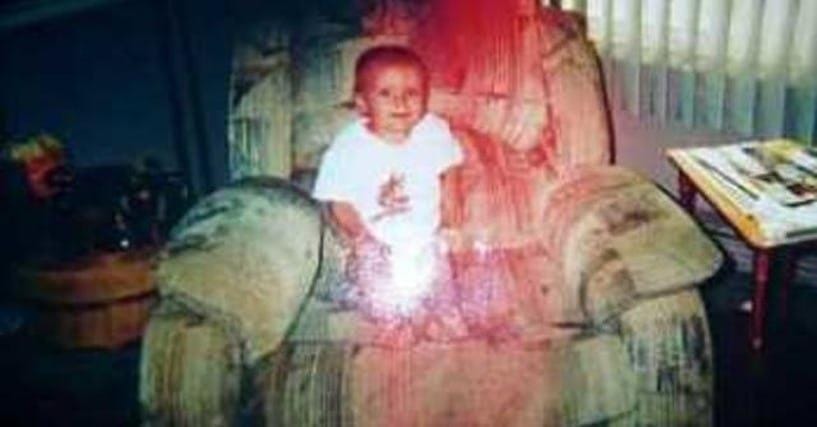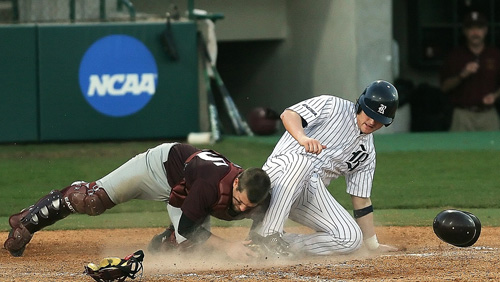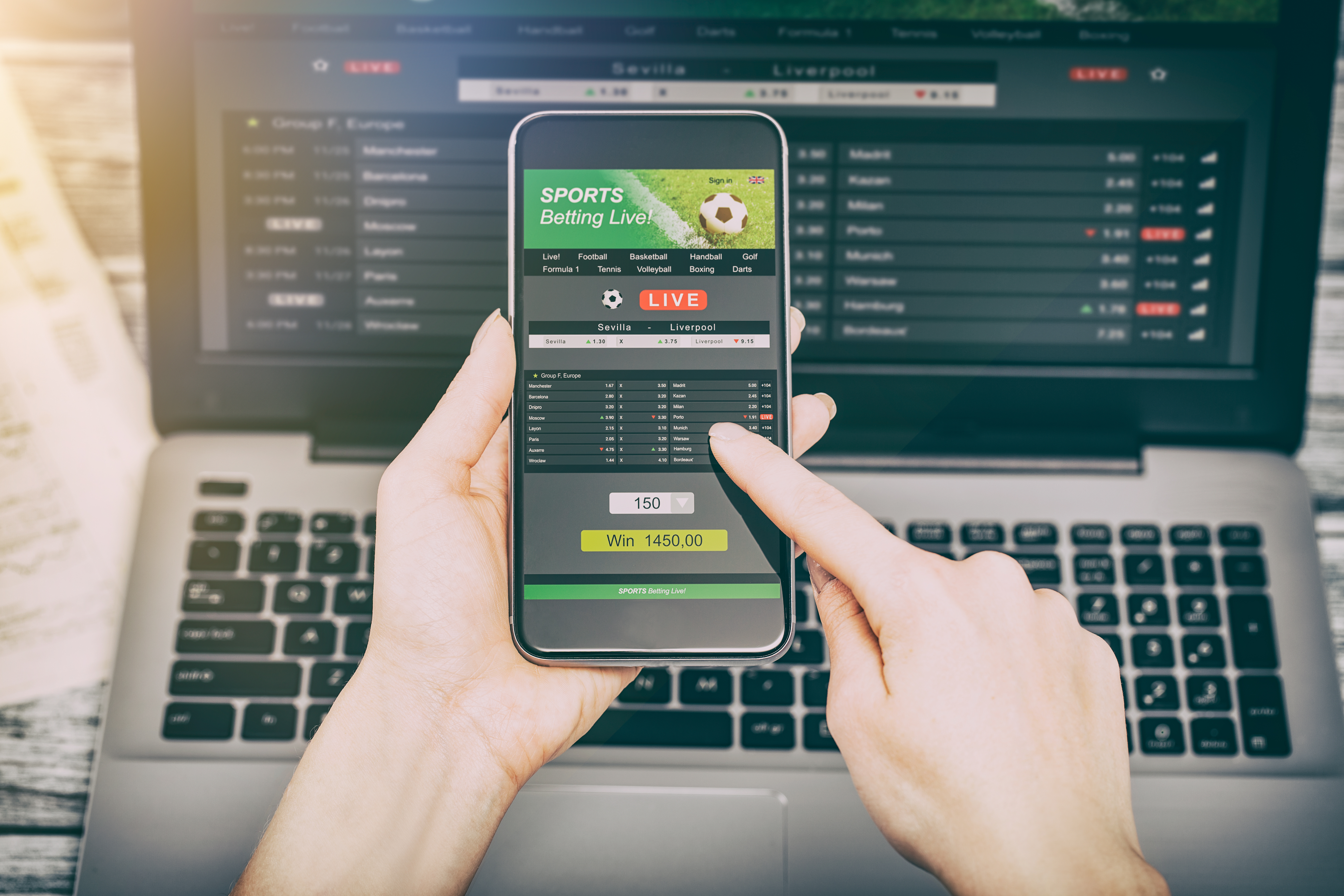College Athletes Caught Gambling
NCAA President Mark Emmert talked about the advent of legal sports betting in the US at his organization’s annual meeting, and he doesn’t sound happy about it.
Addison Choi, a former Babson College soccer player, faces prison time after pleading guilty in federal court of transmitting threats in interstate commerce, according to MassLive.com. While pathological gambling is a problem that affects relatively few student-athletes, it is nonetheless a persistent health concern for some individuals: 1.9 percent of males and 0.2 percent of female student-athletes are exhibiting some clinical signs of problem gambling, placing them at extremely high risk for mental health issues.

Here’s what he said,according to The Associated Press.
“Sports wagering is going to have a dramatic impact on everything we do in college sports,” Emmert said. “It’s going to threaten the integrity of college sports in many ways unless we are willing to act boldly and strongly.”
Emmert’s comments come a few months before the start of the NCAA men’s basketball tournament, one of the biggest betting events of the year. It will be the first time legal betting on March Madness will take place in the US outside of Nevada.
While it’s right his organization should be vigilant on the integrity front, it’s also disingenuous.
Why is the NCAA talking about sports betting in the future tense?
Emmert, like many concerned with how sports betting rolls out in the US, was quick to bring up its intersection with integrity.
Certainly, the NCAA, whose players only receive scholarships, is of more concern then major pro leagues on the betting front. But it also ignores the fact that betting on college sports has been going on in myriad ways already:

- Via legal wagering in Nevada, Europe and elsewhere.
- Via local bookmakers operating illegally.
- Via offshore bookmakers operating illegally.
All of this activity translates to hundreds of millions of dollars being bet on college athletics already. So it’s curious when an organization like the NCAA talks about sports betting like some sort of new activity.
Gaming industry also disagrees
Sara Slane, the American Gaming Association’s senior vice president, offered this rebuttal to Emmert’s words on sports betting:
College Athletes Caught Gambling Videos
“In recent remarks at the NCAA Annual Convention, NCAA President Mark Emmert suggested that continued legalization and regulation of sports wagering across the country ‘is going to have a dramatic impact on everything we do in college sports [and will] threaten the integrity of college sports in many ways.’ Mr. Emmert is failing to address, or choosing to ignore the decades-old, massive illegal market for sports betting in this country — which includes betting on collegiate athletics — that continues to thrive. Surely the NCAA can’t support the status quo.

“Sports wagering is a multi-billion dollar, sophisticated enterprise that, if left primarily in the shadows, will continue to threaten competition and bet integrity, tax law enforcement resources and perpetuate the vulnerability of athletes — particularly unpaid amateur athletes — to bad actors in the illegal market. Only by legalizing and regulating this popular American activity can we offer protection to competition, consumers and competitors, ensure that responsible sports wagering is properly regulated, and that those laws are enforced.
“The AGA continues to support the expansion of legal, regulated sports wagering. In the eight states where sports betting is now legal, consumers have a viable, safe alternative to place bets and benefit from the protection of stringent oversight by experienced gaming regulators. Without legalization, none of these protections exist and we leave game and bet integrity, consumers and athletes vulnerable.”
Legal sports betting should also help its integrity
While there are going to be more opportunities to bet on college sports, it is going to happen through regulated sportsbooks instead of the existing ones we have little insight into.
That means if you are placing very large wagers on a game, the sportsbooks are going to know who you are. They have every bit as much of an interest in the games being played fairly as the leagues do. Scandals around betting are every bit as bad for the industry as they are for leagues and teams.
You can believe what you want about betting on college sports and whether it’s appropriate to do with 18- to 22-year-olds playing an amateur sport. But hoping for a ban on it in state or federal law, at this point, would simply relegate the activity to the black market.

College Athletes Caught Gambling Caught
If you are the NCAA, would you rather have hundreds of millions bet via websites in Costa Rica or with gaming companies regulated by US entities? It should be an easy choice, but apparently, it’s not for Emmert and company.
The NCAA at least now supports federal regulation of sports wagering. But less than a year ago it was fighting the legalization of sports gambling in the US Supreme Court and still banning NCAA championship events held in states even pondering sports betting.
The NCAA should be advocating for good regulation around integrity, not screaming from the hilltops that it threatens their sports. Hopefully, they will realize that someday.

NPR’s sites use cookies, similar tracking and storage technologies, and information about the device you use to access our sites (together, “cookies”) to enhance your viewing, listening and user experience, personalize content, personalize messages from NPR’s sponsors, provide social media features, and analyze NPR’s traffic. This information is shared with social media, sponsorship, analytics, and other vendors or service providers. See details.
Ncaa Athletes Caught Gambling
You may click on “Your Choices” below to learn about and use cookie management tools to limit use of cookies when you visit NPR’s sites. You can adjust your cookie choices in those tools at any time. If you click “Agree and Continue” below, you acknowledge that your cookie choices in those tools will be respected and that you otherwise agree to the use of cookies on NPR’s sites.